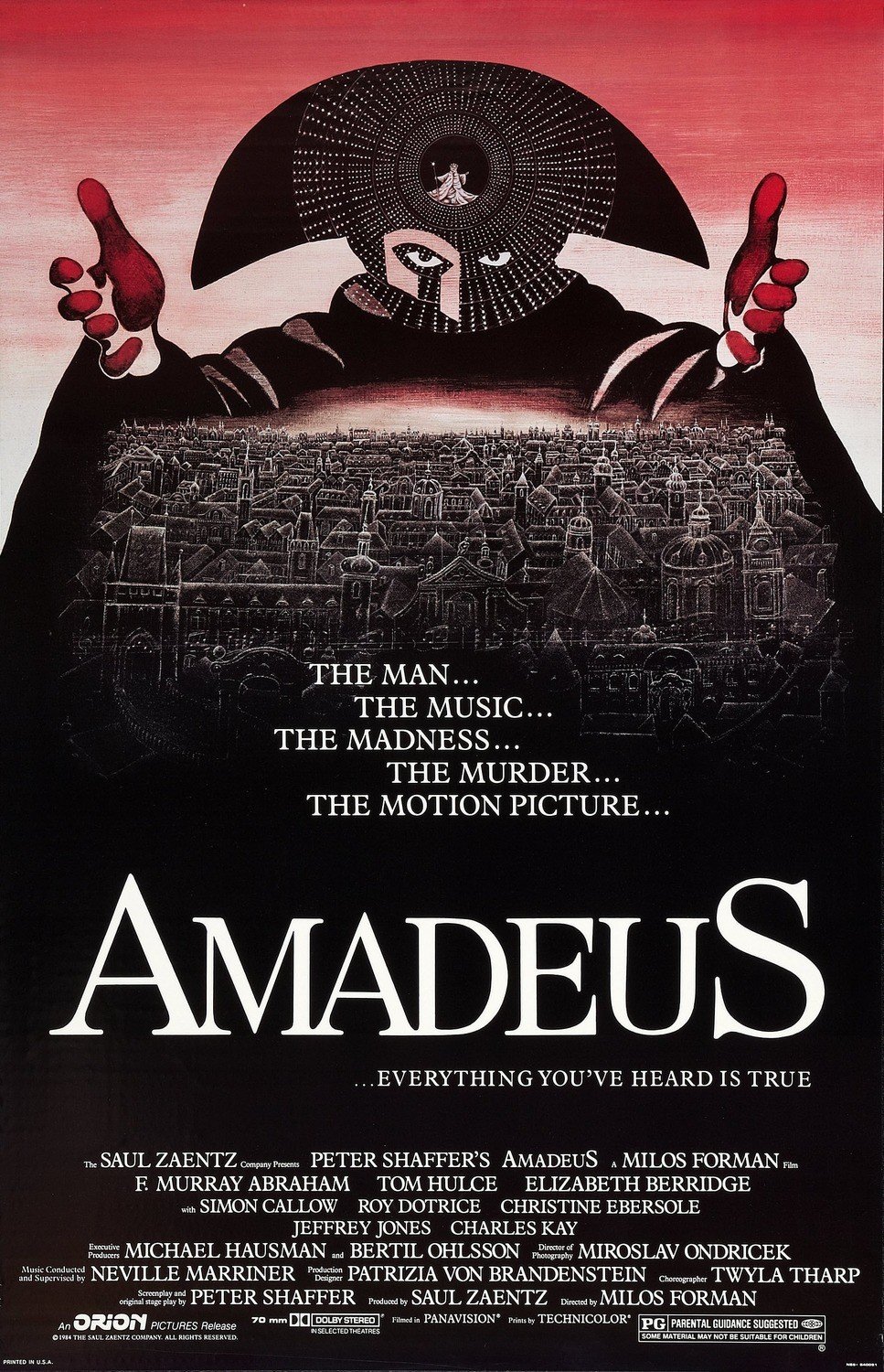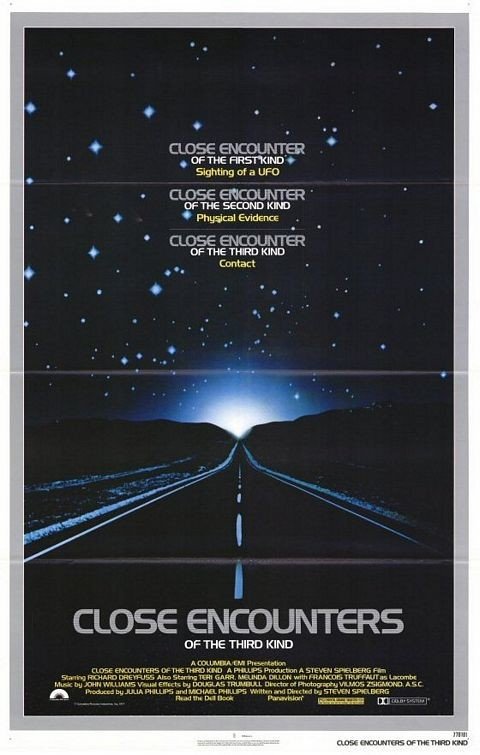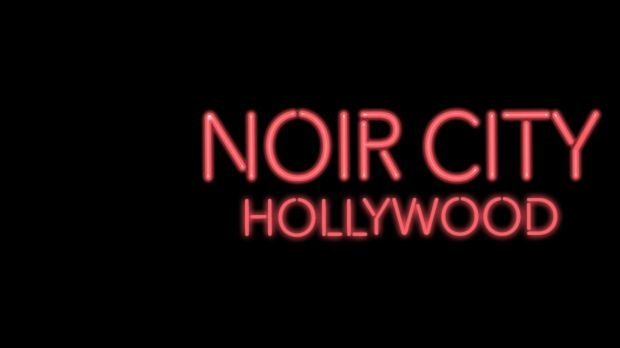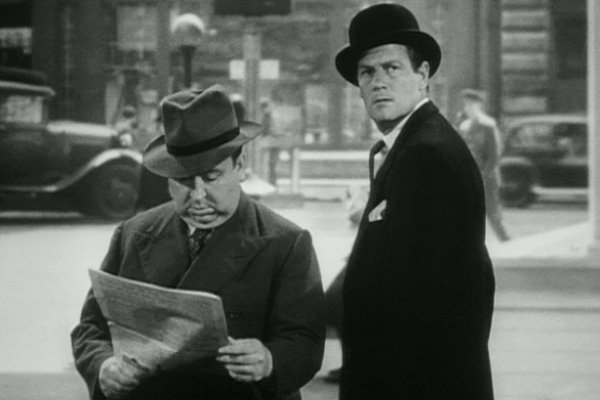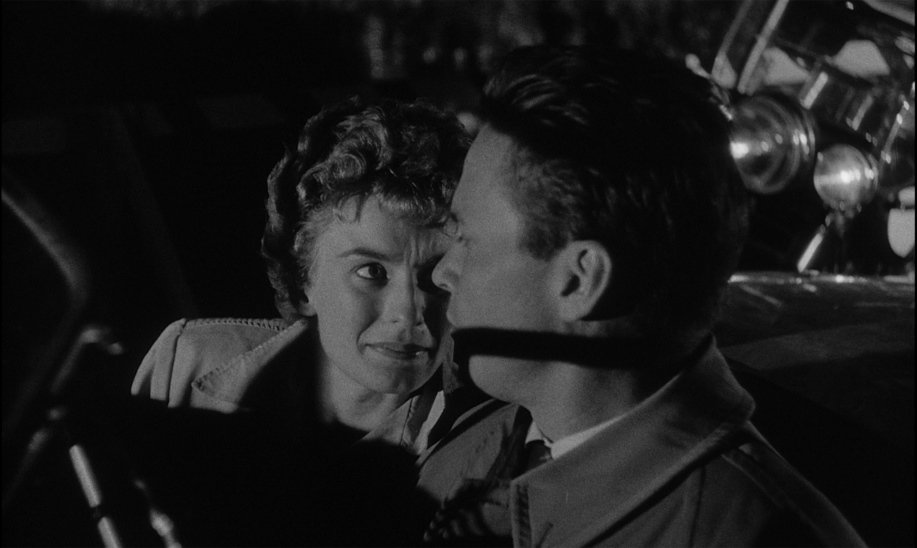"Now Listen to Me..."
Just some thoughts on this month’s happenings:
Classic film screenings from around the world this March include:
In New York City, New York, Film Forum will present JAPANESE HORROR from Friday, March 1 - Thursday, March 14.
The programme reads:
Spanning over 90 years of Japanese cinema, from the silent era to the early 21st century, the festival includes work by Akira Kurosawa, Kenji Mizoguchi, Masaki Kobayashi, Hiroshi Teshigahara, Kaneto Shindō, Ishirō Honda, Takashi Miike, Kiyoshi Kurosawa, Hideo Nakata, among many others.
Including ONIBABA, KWAIDAN, HOUSE, RINGU, KURONEKO, AUDITION, UGETSU, THE FACE OF ANOTHER, CURE, THRONE OF BLOOD, DEMON POND, GODZILLA and much more.
Select titles presented with support from the Ada Katz Fund for Literature in Film.
Presented in partnership with the Japan Foundation.
Classe tous risques aka The Big Risk (1960, a New 4k Restoration) will be presented from Friday, March 15 – Thursday, March 21.
For more information on the Japanese Horror series or Classe tous risques, click on the appropriate image above. For a complete calendar of all the films playing this month, click on the Film Forum banner.
In Detroit, Michigan The Redford Theatre will present Gold Diggers of 1933 (1933, a 35mm print) Saturday, March 2, and To Kill a Mockingbird (1962, a 35mm print, with a live appearance by Mary Badham “Scout”) on Monday, March 11.
Click on the respective movie image for more information. To see the entire month’s programming, click on The Redford Theatre banner above.
In Auckland, New Zealand Academy Cinemas is presenting The Parallax View (1974) Monday, March 4, The Party (1968) Saturday, March 9, Odd Man Out (1947) Monday, March 11, and Band a part aka Band of Outsiders (1964, in celebration of this film’s 60th Anniversary) on Monday, March 11.
To obtain more information specifically on each of these programmes, click on the corresponding image. To see the entire month of March’s programming, click on the Academy banner above.
Dangerous Games: Jacques Rivette × 4
In Vancouver, British Columbia, The Cinematheque will be present “Dangerous Games: Jacques Rivette × 4” a series of 4 films by Jacques Rivette from March 4 - April 1, and The Castle of Cagliostro aka ルパン三世 カリオストロの城 (1979) on Sunday, March 17 at 10:30 am only.
For more information about the Rivette series or individual screening mentioned, click on the appropriate image. For all of the films scheduled this month at The Cinematheque, click on the theatre banner above.
In London, United Kingdom The Prince Charles Cinema will present Thunderball (1965, a 4k presentation) Tuesday, March 5, Persona (1966, a 35mm print) Wednesday, March 6 and Saturday, March 16, Amadeus [Director’s Cut] (1984, a 35mm print) Thursday, March 7, The Seventh Seal (1957, a 35mm print) Thursday, March 7, Starship Troopers (1997, a 35mm print) Friday, March 8, Paths of Glory (1957) Monday, March 11, Close Encounters of the Third Kind [Director’s Cut] (1977, a 35mm print) Wednesday, March 13, Heat [Director’s Definitive Edition] (1995, a 4k presentation) Saturday March 16, No Country for Old Men (2007, a 35mm print) Tuesday, March 19, Into the Wild (2007, a 35mm print) Tuesday, March 19, The Killing (1956, a 35mm print) Thursday, March 21, On Her Majesty’s Secret Service (1969, a 4k presentation) Saturday, March 23, Klute (1971, a 35mm print) Sunday, March 24, To Live & Die in L.A. (1985, a 35mm print) Monday, March 25, and Taxi Driver (1976, a 35mm print) on Tuesday, March 26.
* Note: Some of the above showtimes are matinees only.
Click on the film’s respective image for more information. To see March’s complete programming, click on The Prince Charles Cinema banner above.
In theatres across the U.S., Fathom Events is presenting Labyrinth (1986) on Wednesday, March 6 and Sunday, March 10.
Click on the film’s poster image for more information. To see this month’s entire schedule, click on The Fathom Events banner above.
In Bergen, Norway The Cinemateket i Bergen will present Children of Paradise aka Les enfants du paradis (1945) on Thursday, March 7 and Sunday, March 10.
For more information on this film’s showing, click on the movie image above. For further information on the other films being presented at The Cinemateket, click on the banner image above.
In Culpeper Virginia, The Library of Congress at the Packard Campus Theater is presenting Peg O’ My Heart (1933) Thursday, March 7, and The Quiet Man (1952) on Friday, March 29.
Click on the poster image for more information on each film’s screening. To see the rest of March’s schedule, click on the Packard Campus image above.
In Los Angeles, California The Beverly Cinema will present a double bill of Cat People (1942, a 35mm print) and The Spiral Staircase (1946, a 35mm print) Friday, March 8, a double bill of Johnny Guitar (1954, a 35mm print) and Forty Guns (1957, a 35mm print) Wednesday, March 13 and Thursday, March 14, and a double bill of Play It As It Lays (1972, a 35mm print) and Puzzle of a Downfall Child (1970, a 35mm print) on Tuesday, March 19 and Wednesday, March 20.
Click on the respective image for more information. To see the rest of March’s schedule, click on The Beverly Cinema banner above.
In Valencia, Spain, Culturarts Generalitat IVAC – La Filmoteca at the Edificio Rialto will be presenting The Unknown (1927, as part of their “Cinema, Living Record of Our Memory” series) Saturday, March 9 and Sunday, March 10, The Stalking Moon (1968, as part of their Contemporary Western series) Wednesday, March 20 and Saturday, March 23, and The Wild Bunch (1969, as part of their Contemporary Western series) on Friday, March 29 and Saturday, March 30.
Click on the film’s image for more information on each screening. To discover more of March’s programming including other films playing in Valencia, Spain at the Edificio Rialto, Castelló, Spain at the Raval Theatre and at the Paranimf of the Universitat Jaume I, and Alicante Spain at the Arniches Theatre, click on the banner image above.
In theatres across the U.S. Flashback Cinema is presenting The Quiet Man (1952) Sunday, March 10 and Wednesday, March 13.
Click on the poster image for more information. To see the entire month’s programming, click on The Flashback Cinema banner above.
In Los Feliz (part of greater Los Angeles) California, The American Cinematheque Los Feliz 3 Theatre will present Murmur of the Heart (1971, a 35mm print) on Monday, March 11.
Noir City Hollywood will be held at The American Cinematheque Egyptian Theatre in Hollywood (part of greater Los Angeles) from March 22 - March 31.
The programme reads:
NOIR CITY: Hollywood returns to the Egyptian Theatre! One of the most elaborate theatrical noir showcases in the United States celebrates its 25th anniversary at the American Cinematheque with a killer lineup of twenty-three films. In the face of contemporary political turmoil, NOIR CITY has declared “Darkness Has No Borders” as its guiding principle. Alongside its classic lineup, the festival will present a series of allegorical double features, pairing international films with more familiar English-language ones. Join the Film Noir Foundation’s Eddie Muller and Alan K. Rode on a global adventure of noir cinema with twelve 35mm prints (including a glorious Nitrate print) and special guests for a splashy, sinister trip back in time.
For more information specifically on each of these programmes, click on the corresponding image. To see the entire month of March’s programming including other films showing at The Egyptian Theatre in Hollywood, The Los Feliz 3 Theatre in Los Feliz, and The Aero Theatre in Santa Monica (also part of greater Los Angeles) click on the American Cinematheque banner.
In Lyon, France The Orchestre National de Lyon will present City Lights (1931) with live musical accompaniment featuring Charlie Chaplin’s delightful music on Friday, March 15 and Saturday, March 16.
Click on the above image for more information.
In Melbourne, Australia The Astor Theatre is presenting a double bill of The Wild Bunch (1969, a 35mm print) along with Deliverance (1972, a 4k Digital presentation) on Monday, March 18.
Click on either poster image for more information on this screening. To see the rest of March’s schedule, click on The Astor Theatre banner above.
There are 30 reviewed films to watch on Turner Classic Movies in the U.S. this month:
“Yes, I can be very cruel. I have been taught by masters.”
Olivia de Havilland is The Heiress, previously reviewed here and appearing again on TCM Friday, March 1 at 9 am PST.
TCM is showing Guess Who’s Coming to Dinner (1967) on Friday, March 1 at 3 pm PST. This is a film I’ve been rather dismissive of in my brief review which can be read here. On the plus side, all of the able-bodied cast members deliver solid performances.
Anatomy of a Murder (1959) is one of the most authentic and enthralling courtroom dramas of all time. Previously reviewed here, the trial will begin Saturday, March 2 at 9 am PST.
One of my past TCM recommendations, reviewed here, is 1945’s The Lost Weekend. Billy Wilder's portrayal of a struggling alcoholic contains a powerhouse performance by Ray Milland. The bottle can be found on TCM Sunday, March 3 at 1 pm PST.
Make way for the rapturous Stanley Donen directed musical Seven Brides for Seven Brothers (1954), reviewed here, Monday, March 4 at 3 pm PST.
Next is a sterling example of how to present complex and enthralling characters, all of whom develop naturally while still holding our intense fascination: Citizen Kane (1941).
A previous TCM recommendation here, this American film masterpiece, the only U.S. film represented on our Top Ten: World Cinema Treasures, will begin Tuesday, March 5 at 2:45 pm PST.
In our Facebook chat room (all readers are welcome to join here), Citizen Kane came under significant fire for being boring and overrated. It seemed the best defence enthusiasts could muster was based primarily on the film’s technical achievements which prompted me to make the following response:
"Citizen Kane is, for myself, aside from all of the technical razzle-dazzle, an insightful, exploratory look into the human psyche. The relationships are chronicled with immense creativity and dynamism, having personalities rich in intellectual and emotional development, and yet remain consistent with each individual's temperament. It's not simply Welles' flashy style to admire here... it is how ingeniously he fuses those techniques into his narrative's progression that serves to enhance such a passionate overview of his characters while providing a thorough understanding of their experiences from each one's unique perspective, particularly in how some view their past.
I think those who look to a film like Citizen Kane for superficial entertainment qualities are apt to miss out on the profound relationship developments inherent in the narrative. These are rich, multilevel characters with complex emotions responding to their ever changing circumstances. To appreciate the kind of sophisticated delineation of individuality requires a substantial investment on the viewer's part, some may not be accustomed to giving. This is perhaps due to the overwhelming number of lesser cinematic fare providing simple and identifiable personas easy to assimilate as well as instantly gratifying resolutions to their conflicts. Others may be dismissive toward films like this one because they don't like seeing what are perceived as negative traits recognisable in themselves and/or other important people in their lives, plus the fact that, just like in real life, Citizen Kane’s populace tend to suffer through them rather than being provisioned with artificial heroic triumphs. Many films offer an escape from reality. Citizen Kane confronts us with it. Both types have value but when such an enlightening story is told with so much drive, innovation and passion, it transcends both categories.”
I’ve written a brief summary of my thoughts on 1986’s Academy Award Winning Platoon here. Oliver Stone’s most personal film will be shown Tuesday, March 5 at 7 pm PST.
“What a story! Everything but the bloodhounds snappin' at her rear end.”
All About Eve (1950) is really all about the spoken word and is a prior TCM recommendation here. She will make her appearance Wednesday, March 6 at 5 pm PST.
Next up is Alfred Hitchcock's dazzling thriller, Foreign Correspondent (1940), previously reviewed here. His main character’s precarious globe trotting assignment will begin Thursday, March 7 at 8:45 am PST.
Recently in a Facebook film chat room someone asked which film was better, Casablanca or Citizen Kane. This caused me to think about their differences, more specifically their varied approach to dramatic storytelling, to which I responded:
"I think Casablanca for many, has a far more instantly recognisable appeal, including its characters some of whom possess highly emulative qualities. Its emotional pleas are up front and easy to assimilate. Citizen Kane has more complexity, flawed characters who are invested in the past, relationships that are changing and developing, mostly in a tragic way. Casablanca ends with heroic sacrifice and optimism. Kane is dire and ultimately about loss. Casablanca's highlights remind one of its pleasures, immediate and gratifying. Kane is a deeply contemplative journey, requiring a significant investment of thoughtful consideration on the viewer's part in order to uncover its enormous wealth of profound insight into human relations."
Both films are showing on TCM this month: Citizen Kane, earlier this month and previously recommended here, and Casablanca (1942), reviewed here, the latter which will show Thursday, March 7 at 5 pm PST.
Out of Africa, like Platoon, is another Academy Award Winning film from the ‘80s (1985 to be exact) that I have been rather critical of. Like Platoon and the following TCM selection Rain Man, my observations can be found here, in Part 2 of an article entitled “How Quentin Tarantino’s ‘One of the Worst Decades in Hollywood…’ Was Actually One of Its Greatest.” Out of Africa will be presented on Thursday, March 7 at 7 pm PST.
As stated just above, Rain Man (1988) is another film briefly commented upon here and will show Friday, March 8 at 5 pm PST.
David Lean’s magnificent 1962 epic Lawrence of Arabia will be presented on Saturday, March 9 at 1 pm PST. I wrote a brief review here in response to some members of our chat room (all readers are encouraged to join here: https://www.facebook.com/groups/902349343110685) who also shared their thoughts on this important film.
TCM will show The Best Years of Our Lives (1946), an incisive look into how each of three returning servicemen adapt to civilian life at home, after World War II. Previously, I highly praised The Best Years of Our Lives for its exceptional musical score composed by Hugo Friedhofer in the first part of a series entitled Top Ten: Motion Picture Music Treasures. This emotionally powerful tour de force will commence Saturday, March 9 at 9 pm PST.
1967’s Bonnie and Clyde is a seminal gangster saga heavily influenced by the French iconoclast Jean-Luc Godard. A prior review here includes a special contribution from Bob DiMucci who informatively reports on some of the film's critical responses at the time of its release. Following that, are my personal recollections at the age of 12 upon seeing this radically-new expeditious approach to American cinematic storytelling. The Barrow Gang will strike on TCM Sunday, March 10 at 11 am PDT.
Just letting viewers know that TCM will be showing Around the World in 80 Days (1956), previously reviewed here, on Sunday, March 10 at 5 pm PDT.
After directing Colorado Territory, Raoul Walsh’s very next film retained all of that film’s energy and even added some for White Heat (1949), previously reviewed here. TCM's screen will heat up Monday, March 11 at 11:45 am PDT.
Next is Baby Face (1933), the Pre-Code sensation starring Barbara Stanwyck, reviewed here, and making her spirited appearance on Monday, March 11 at 5 pm PDT.
My next recommendation is Howard Hawks’ lightening fast comedy/romance His Girl Friday (1940), reviewed here and blasting off on TCM (updated) Tuesday, March 12 at 5 pm PDT.
Film noir has few representatives as dourly defeatist or as forcefully communicative on the subject of human relations than 1945's Scarlet Street, previously reviewed here. Edward G. Robinson as Christopher Cross will take his fateful walk down that dark and foreboding street Thursday, March 14 at 6:30 am PDT.
Another “Street” worth visiting is John Sturges’ masterfully directed film noir, 1950's Mystery Street reviewed here. This CSI noir with a ‘Hitchcockian’ twist can be investigated Thursday, March 14 at 12:30 pm PDT.
A film well worth seeing is Network (1976), previously reviewed here. This “mad as hell” exposé of just how far some TV executives will go to exploit for profit a former news anchor’s severe “on the air” mental breakdown, will itself air on TCM Friday, March 15 at 11:15 pm PDT.
Bad Day at Black Rock, reviewed here, is 1955's modern-day take on the American Western. This exceptional suspense-thriller is also a former entry in Eddie Muller’s Noir Alley and will occur Saturday, March 16 at 11:30 am PDT.
A true romance film and of the highest artistic calibre has been reviewed in Opening Up a Treasure: Brief Encounter. Director David Lean's stirring "encounter," released in 1945, will begin on Friday, March 22 at 1:45 pm PDT.
Another TCM recommendation this month is Steven Spielberg’s 1971 originally made for TV movie Duel reviewed in the CC’s debut “Dish of the Day” daily column here and showing Friday, March 22 at 9 pm PDT.
TCM is bringing back Bringing Up Baby (1938) previously recommended here. "Baby" will be brought back and up on Saturday, March 23 at 3 pm PDT.
MGM's 1952 musical Singin' in the Rain was not adapted from a theatrical production, though the film was later turned into one, being first presented on stage in 1983. Its abundant creativity, innovation and driving energy place this film at the top of all cinematic musicals ever produced. Singin' in the Rain has been reviewed as a past Blu-ray selection here and will joyously dance its way onto TCM Monday, March 25 at 5 pm PDT.
My next TCM film to see is the late Mike Hodges’ 1971 Neo-noir triumph Get Carter which is reviewed as a Blu-ray recommendation here. Viewers can get Carter Saturday, March 30 at 3 pm PDT.
The next film appearing in Eddie Muller’s Noir Alley is 1954’s Pushover, reviewed here and making a rare showing Saturday, March 30 at 9:30 pm PDT and again Sunday, March 31 at 7 am PDT.
This last TCM recommendation for the month is indeed The Last Picture Show, one of the most astute explorations of small town American life, previously reviewed here. This is one of the finest films of the ‘70s and can be seen Saturday, March 30 at 11:15 pm PDT.
TCM's current monthly schedule can be confirmed by clicking on any of the above TCM related images. For those who live in parts of the U.S. other than the western region, the time zone can be adjusted in the upper right-hand corner of TCM's programme.
A Happy Birthday shout-out to the exceptional French actress Dominique Sanda, who turns 73 on March 11th.
She has lent her dazzling presence to a number of distinguished films, many for world-class filmmakers including A Gentle Creature (1969, her debut performance), The Conformist (1970, an unforgettable role as Anna Quadri in Bernardo Bertolucci’s masterpiece, pictured), The Garden of the Finzi-Continis (as the indelible tragic figure Micòl Finzi-Contini, this time for director Vittorio De Sica), Without Apparent Motive (1971, teamed with Jean-Louis Trintignant as she was in The Conformist), The MacKintosh Man (1973, opposite Paul Newman for director John Huston), Conversation Piece (1974, alongside Burt Lancaster, for director Luchino Visconti), Steppenwolf (1974, a CC Hidden Gem), 1900 (1976, working again with director Bernardo Bertolucci alongside Robert De Niro and Gérard Depardieu), The Inheritance (1976), Damnation Alley (1976), Le voyage en douce (1980), Une chambre en ville (1982, for director Jacques Demy), Tolgo il disturbo (1990, for director Dino Risi), I, the Worst of All (1990), The Voyage (1992), Rosenemil (1993), The Crimson Rivers (2000), and Il giovane Pertini - Combattente per la libertà (2019).
The Soundtrack recommendation of the month is Jerry Goldsmith's thrilling score to 1978's epic disaster (in more ways than one) motion picture The Swarm.
I cannot recall when I’ve had to address a film’s qualities, or in this case the lack thereof, on such a fundamental level. Everything is so poorly executed from its premise of African killer bees on the loose to the acting to the writing; if the killer bees had any real sense, they would have attacked those behind the camera. The title refers to its overwhelming number of plot implausibilities: bees eat through plastic, blow up a nuclear power plant and are not only the subject of hallucinations (if memory serves correct), they even hallucinate themselves. If only those viewing this film could have been so fortunate. Meanwhile, there are some needless romantic and military subplots inserted that go nowhere and amount to nothing.
Jerry Goldsmith, being the consummate professional, provided his customarily muscular musicality as if everything witnessed is really happening, which remains the sole reason to watch this disaster spectacle. Better yet, enjoy his wonderful score on its own.
La La Land Records has made this 2-Disc limited edition available through their website. More information including ordering can be obtained by clicking on the accompanying image.
Kiss Me Deadly (1955) is March’s Blu-ray recommendation.
Don’t let the lurid title fool you. It doesn’t begin to describe the sordid happenings in this private investigator’s depraved and savage little world. Crime novelist Mikey Spillane’s detective is named Hammer and he’s just as subtle. He’s “on the case” but it’s not an assignment in the conventional sense since no one has hired him. True to form, Hammer, driven and unafraid, is pursuing his own self-interests. It’s as though a built-up callousness from his penny-ante divorce dealings has formed an impenetrable shield against any sort of human sensitivity. This guy is out for himself. If there was a hamburger named after him it’d be called a “Narcissist Royale.”
Cloris Leachman, Ralph Meeker
As nastily low as film noir can go, Kiss Me Deadly plunges even further into an abyss of obsessional debauchery. Director and co-adaptor of Spillane’s novel, Robert Aldrich (of The Dirty Dozen and Whatever Happened to Baby Jane? fame) has never avoided soiling his hands, but Kiss Me Deadly’s sludge rises to such a level it’s a wonder the director could breathe enough to finish the picture.
(From left) Paul Stewart, Ralph Meeker
Mike Hammer (Ralph Meeker perfectly cast) is stopped on the road by an escaped asylum inmate (a sensational Cloris Leachman). After her horrible demise and what turns out to be the first of Hammer’s near-death experiences, he tracks down the leads she provided. The lucky to be alive P.I. thinks there must be “something big” incentivising some giant pay-off… and boy, is he right (although it couldn’t be further from what he expects). The more deliriously deadly his situations become, the more Hammer seems right at home. Besides, the desperation he witnesses confirms an enormity of underlying determination which, in turn, only strengthens his own daredevil manoeuvrings and resolve to discover what’s behind it all.
(From left) Percy Helton, Ralph Meeker
At one point, Hammer gets a dressing-down from his secretary Velda Wickman (a vivid performance by Maxine Cooper), foretelling Angie Dickinson’s similar prophetic admonishment to an equally stubborn Lee Marvin as Walker concerning his futile quest in 1967’s Point Blank. Velda says to Hammer: "They. A wonderful word. And who are they? They're the nameless ones who kill people for the great what’sit. Does it exist? Who cares. Everyone everywhere is so involved in the fruitless search for what.” Despite numerous warnings, not for a second does Hammer’s perilous pursuit pause. Along the way, he’ll attempt to nail down a host of equally grotesque, egocentric individuals, played by such character acting luminaries as Albert Dekker, Paul Stewart, Wesley Addy, Gabby Rodgers, Nick Dennis, Jack Lambert, Jack Elam, Percy Helton, Strother Martin, and Fortunio Bonanova. Kiss Me Deadly is so crammed with temperature rising desire for the “great what’sit”, the only conceivable outcome (***SPOILERS***) is some kind of unearthly explosion. It’s a build up to a final blast so intense, it breaks through the confines of any genre or era to summarise humankind’s insatiable lust for power, the implications of which still lie beyond our comprehension.
Gaby Rodgers
If this film had been released after 1958, the audaciously brazen and highly influential Kiss Me Deadly would have supplanted Touch of Evil as the ultimate film noir Kiss-off of atomic proportions.
Maxine Cooper, Ralph Meeker
Click on the image below for more information on this Criterion (Region A) release currently available from amazon.co Your purchase goes to help our friends at DVD Beaver. *
* All of the captures above were taken from the Criterion presentation below.
A.G.
















